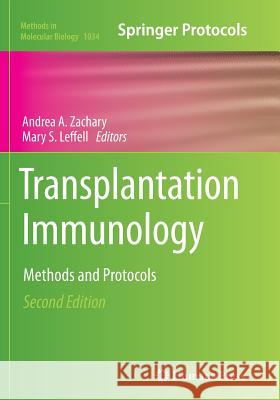Transplantation Immunology: Methods and Protocols » książka
topmenu
Transplantation Immunology: Methods and Protocols
ISBN-13: 9781493960156 / Angielski / Miękka / 2016 / 411 str.
Kategorie BISAC:
Wydawca:
Humana Press
Seria wydawnicza:
Język:
Angielski
ISBN-13:
9781493960156
Rok wydania:
2016
Wydanie:
Softcover Repri
Numer serii:
000014950
Ilość stron:
411
Waga:
0.73 kg
Wymiary:
25.4 x 17.78 x 2.21
Oprawa:
Miękka
Wolumenów:
01
Dodatkowe informacje:
Wydanie ilustrowane











